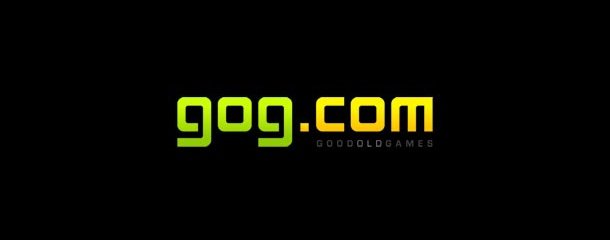
Last week, Good Old Games announced a shift toward games that are not quite so old. I asked Good Old Games' Managing Director, Guillaume Rambourg, what this means for the core of the business, classic PC games, and exactly how GOG.com is going to balance its ideals and identity with the business of newer games.
He laid some fears to rest, and explained how "newer" games should not be confused with "brand new."
Do you think trying to make GOG.com a digital distribution service for new
games will interfere with its original mission? It was a huge boon to GOG users when games from EA started appearing on the service. But now EA and GOG are
digital distribution competitors, are they not? Will that interfere with your ability to reach
agreements with publishers like EA?
Guillaume Rambourg: I think that calling what we're doing a competition with services like Origin or Steam may be a bit misleading. We're remaining true to our original mission of bringing DRM-free games to our users, adding in extra content, and keeping everything priced fairly across the whole world. This is the experience that a user gets when he or she comes to GOG.com, and that experience will remain unchanged.
Keep up to date with the most important stories and the best deals, as picked by the PC Gamer team.
Keep in mind that our initial plan for 2012 involved adding 20 “newer” titles--that is to say, titles between one to three years old. These games are well past their initial sales rush and are in what you would call the long tail of their sales phase. GOG's mission is to give these titles a second youth, making these games virtual “collector's editions” with bundled-in extra goodies like soundtracks and wallpapers. Adding games like this to GOG.com certainly doesn't compete with traditional digital distributors, but will really show off how DRM-free sales channels are an excellent complement to traditional game distribution.
PCG: Is your commitment to DRM-freedom absolute? If so, how will you convince publishers to put newer games on GOG.com, when so many of them are committed to aggressive anti-piracy measures?
Rambourg: Yes, distributing titles without any DRM is our absolute commitment. This has always been one of the key pillars of our philosophy and we will remain faithful to that. I think the way to convince publishers how to put newer games on GOG.com without DRM is simple: show them it works. And, you know, we have!
When it comes to business, results (and actions) talk louder than words. More than 6 million PC classics have been downloaded on GOG since we launched 3 years ago. We serve over 1 million unique clients per month. But most importantly: we proved to publishers and developers that we could generate substantial sales with their products. We've even proved that new games, DRM-free, will generate substantial revenue.
We released The Witcher 2 without any DRM, but with tons of goodies, full customer support, a fair price policy worldwide and a lot more. We sold over 35,000 units so far. All the other smaller platforms combined (Direct2Drive, Gamersgate, Impulse--everyone but Steam) sold under 10,000 units.
Keep in mind that the reach of those platforms combined is a lot bigger than GOG.com's, but we've managed nearly four times the sales. We were also the only DRM-free distribution channel from launch. I don't think that's coincidence. I think we now know as a fact that yes, our model can be successful with any title, whether old or new.
PCG: What can GOG offer smaller publishers that outlets like Steam and GamersGate cannot?
Rambourg: We are not a simple storefront signing and releasing titles as fast as we can without any special care. Every game that we release on GOG.com, we take the time to package it up and celebrate the release. We are not only here to sell games in bulk; we're trying to cultivate a passion for gaming and the great titles you can find on GOG.com.
Our approach is reasonable and sustainable. As gamers do not have endlessly extensive wallets and as days are still made of 24 hours, we want to give proper time to gamers to discover and enjoy all the products we release. We want every release on GOG to be a big event. This is why we currently have two releases per week, while others platforms have a lot more – which makes it easy to completely miss the release of a game.
To develop this interest in ALL our products, we also bundle every title with a vast selection of free goodies (wallpapers, soundtracks, manuals, avatars and a lot more), and also organize regular interviews with the developers. Also, we provide customer support for all titles, rather than frustrating users and telling them to contact the publisher or the devs for that.
Last but not least, what we can offer to smaller publishers is simply an audience of happy and passionate users. Many publishers (including top players) had the occasion to tell us a couple of times that they heard very positive feedback from gamers after their titles got released on GOG.
We do our best to bring extra value to consumers and reassure them that yes, buying PC titles can still make a lot of sense these days. It is all down to what you offer and how you treat gamers. We want them to love gaming and help us spread the message that there is a digital distribution platform that works for them.

